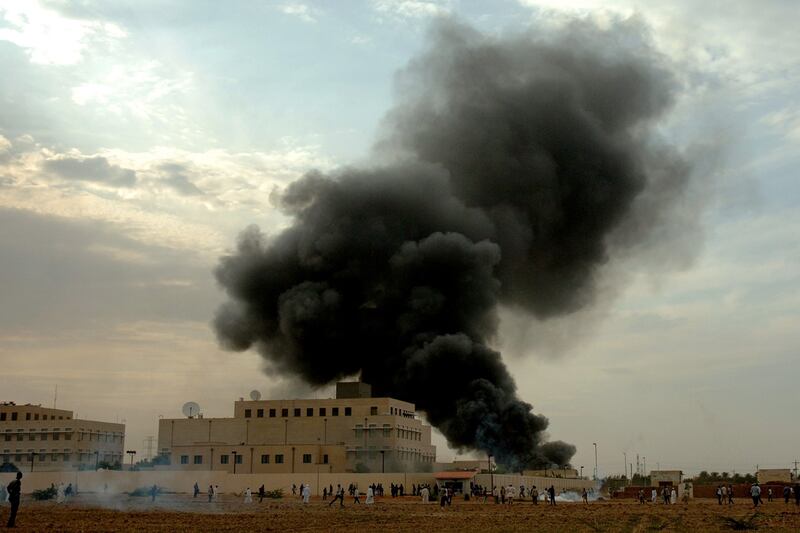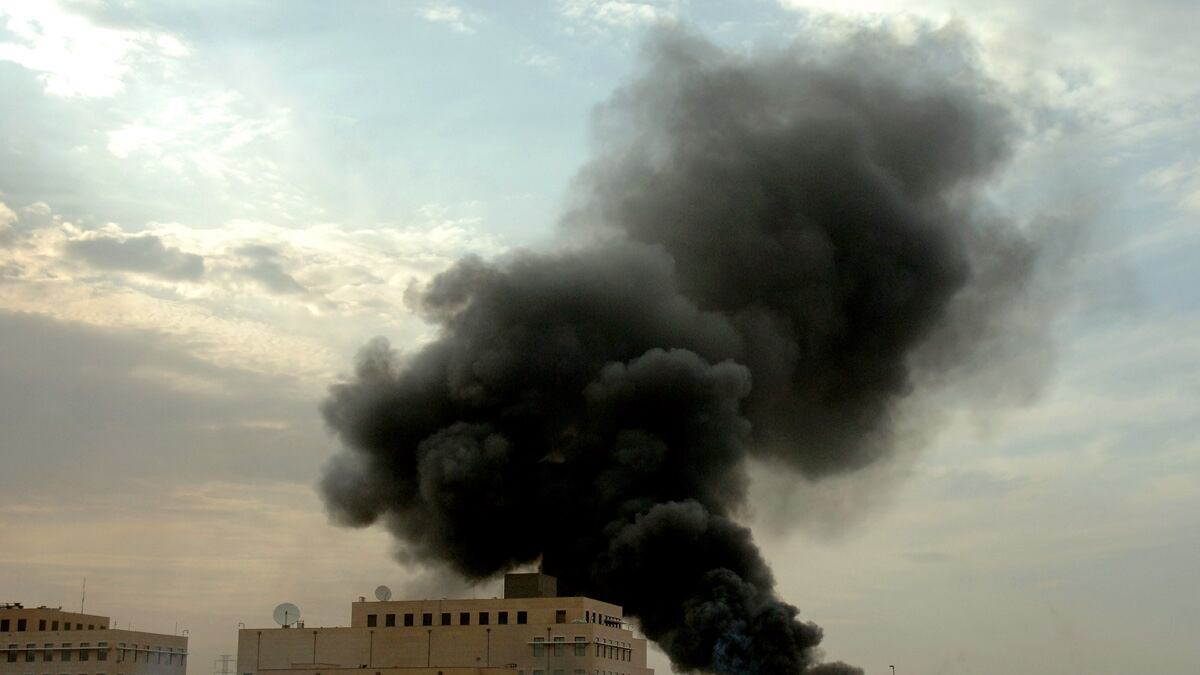The bodies of Ambassador Christopher Stevens and three other Americans slain in Libya this week arrived in the United States yesterday amid disagreements on whether the attack that killed them was pre-planned and also amid rising concerns that widespread Muslim anger could trigger a terrorist attack on U.S. soil.
From North Africa to Bangladesh, tens of thousands of people protested for a fourth day, in what started as a backlash against an anti-Muslim video produced in the U.S. and has turned into the most serious test in relations between America and the Muslim world since the start of mass uprisings in the region early last year.
At least seven people were killed in yesterday’s events, which included large demonstrations in Lebanon, Sudan and the Palestinian Gaza Strip. In Tunisia, protesters breached and looted the American embassy and clashed violently with police and security forces. American staffers had cleared out of the before the protesters arrived.
In New York, a high-ranking police official said that the tumult over the film has heightened the possibility of violence at home. “People who might have been sitting on the fence,” are more inclined towards action, he said, referring to possible domestic terrorism.
“If nothing happens here before the end of the year, it will be a miracle.”
In Egypt, the Islamist president Mohammed Morsi seemed torn between his inclination to lead the protests and his responsibility to contain them. Members of his old movement, the Muslim Brotherhood, called for a huge demonstration Friday but called if off after a testy phone conversation between Morsi and President Obama.

A few thousand protesters showed up nonetheless in Cairo, most appearing to be members of the more devout Salafi movement, rivals of the Brotherhood. A spokesman for the Muslim Brotherhood blamed the Salafists for inciting religious passions they could not control.
“The problem is they basically created this target for where this angry mob can direct its anger. And they started it without being able to control it,” the spokesman, Gehad El Haddad, told The Daily Beast. “So what the Muslim Brotherhood is trying to do is make sure they can grab that anger and control it.”
But it was mainly younger protesters and soccer fans who had made their way to demonstration points and appeared to instigate the violence.
A Daily Beast reporter in Cairo saw pitched stone-throwing battles between riot cops and the young men near Tahrir Square—the site of huge demonstrations last year that led to the ouster of longtime dictator Hosni Mubarak. In one case, police turned and ran, with the protesters cheering and giving chase.
“All of the people standing here will sacrifice their souls so that this movie will be canceled and America will make a formal apology,” said Ahmed Khalil, 29, an employee at a mobile phone shop.
Striking a conciliatory tone, Khairat el-Shater, the deputy president of the Brotherhood wrote in a letter to The New York Times: “Despite our resentment of the continued appearance of productions like the anti-Muslim film that led to the current violence, we do not hold the American government or its citizens responsible for acts of the few that abuse the laws protecting freedom of expression.”
The film, Innocence of Muslims, depicts the Prophet Mohammed as a bumbling pervert, bent on senseless violence. It appears to have been made by California resident Nakoula Basseley Nakoula, an American Christian of Egyptian origin with at least one criminal conviction in his background.
Google has rejected the White House’s request to withdraw the video from YouTube, the company it owns, because it doesn’t violate its rules banning hate speech.
In Yemen’s capital, Sana, security forces used water cannons and occasionally live ammunition to disperse protesters who had gathered outside the American embassy after Friday prayers. Thousands protested elsewhere in the city as well, demanding an official apology from the U.S. and a ban on the film.
On Thursday, Yemeni protesters managed to break their way into the U.S. embassy compound and set fire to some 60 vehicles. At least four protesters were killed in the clashes.
Yemeni media said President Abd Rabo Mansour Hadi, who came to office last February after protesters ousted President Ali Abdullah Saleh—in an insurrection largely supported by the United States—apologized to Obama for the embassy attack.
In places where there was violence across the region, it mostly seemed spontaneous. But American officials were still not sure that was the case regarding the Tuesday attack in Benghazi, Libya, where militants appeared to have fired rocket-propelled grenades at the American diplomatic compound.
Officials initially estimated that the attack was coordinated in advance. But on Friday, Obama’s press secretary, Jay Carney, offered a different version of the events. “We do not at this moment have information…that would indicate that any of this unrest was pre-planned,” he told reporters.
Later in the day, the flag-draped coffins of the four Americans were unloaded at Joint Base Andrews outside Washington where, in a somber ceremony, Obama called Stevens “everything American could want in an ambassador.”
“Four Americans, four patriots—they loved this country, and they chose to serve it and served it well. They had a mission, and they believed in it. They knew the danger, and they accepted it. They didn’t simply embrace the American ideal; they lived it, they embodied it.”
Secretary of State Hillary Rodham Clinton, who knew Stevens personally, said: “We will wipe away our tears, stiffen our spines and face the future undaunted.” She praised his “goofy but contagious” smile, his “California cool.”
The ongoing protests have become a factor in the American presidential race, with Republican candidate Mitt Romney saying it showed weakness on the part of Obama and a misguided policy towards the Muslim world.
“Only by the confident exercise of American influence are evil and violence overcome,” said Romney’s vice presidential nominee, Paul Ryan, on the campaign trail. “This is how we keep problems abroad from becoming crises.”
Reporting contributed by Ali Saeed, Vivian Salama, Michael Daly, Omid Memarian, and Mike Giglio.





